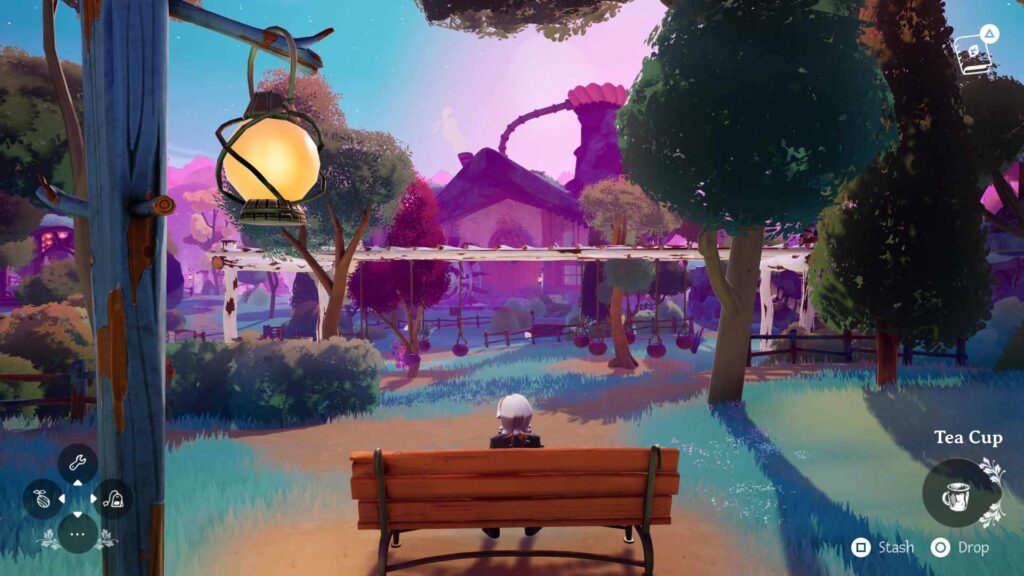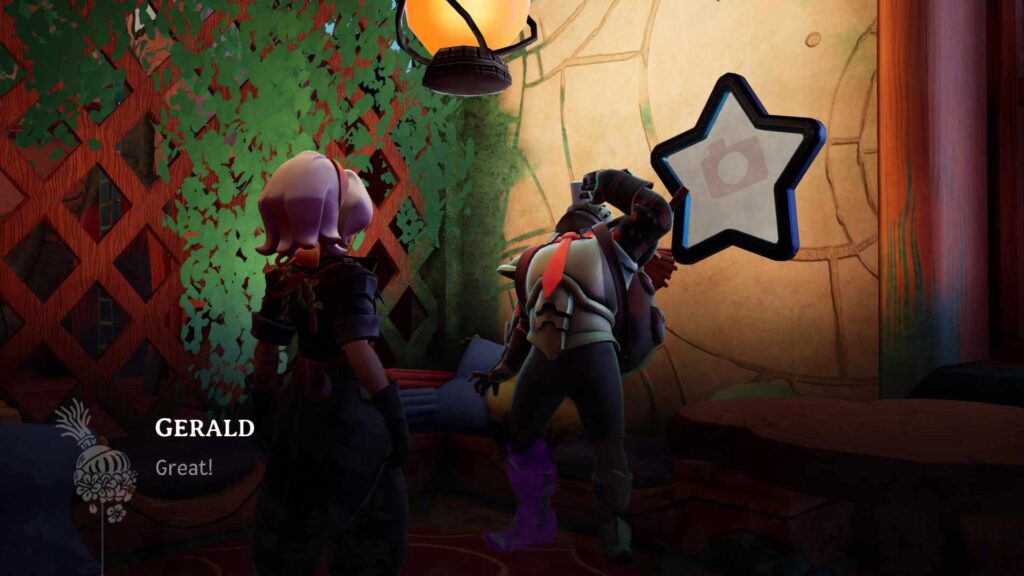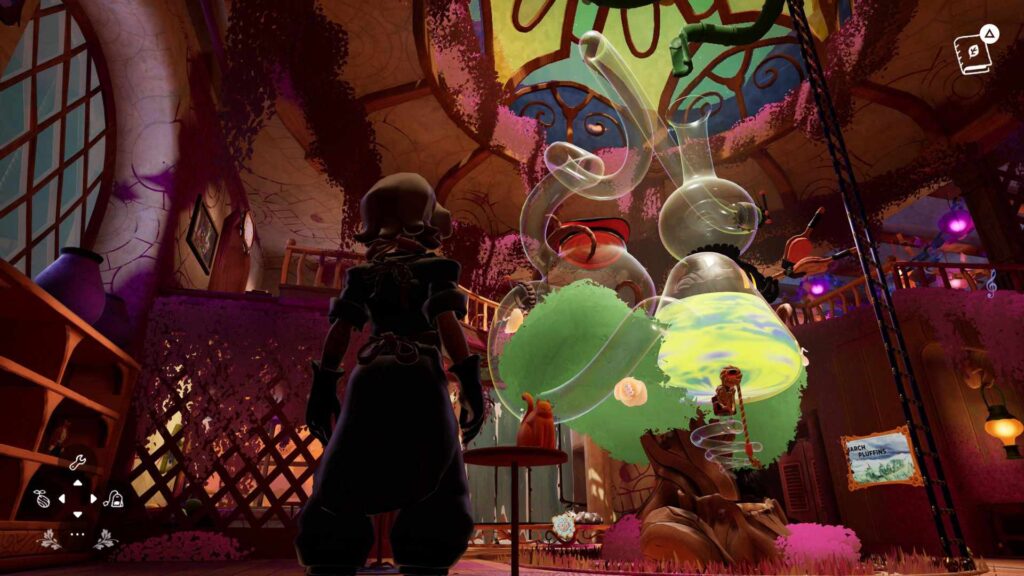Everyone has their own cosy game. A game you play to unwind after a stressful day at work or school. One that makes you forget your daily worries for a while. Wanderstop may be one of the best examples of such a concept. Throwing most of the progression hooks out of the window and asking the player to take their time. To stay as long as they like, or as long as they need…
Life can be hard…
Wanderstop is a game developed by Ivy Road and published by Annapurna Interactive . The project was led by Davey Wreden, Karla Zimonja, who have worked on titles such as The Stanley Parable, The Beginners Guide and Gone Home.
The game tells the story of Altha. A fighter who trained her entire life with one goal in mind: to become an undefeated arena champion. Everything changes when she loses her first match after reigning as champion for three and a half years. She decides to train even harder and come back stronger. She embarks on a journey in search of Master Winters. A legendary fighter who will surely be able to turn her into an unbeatable fighting machine. On her journey to find him, she collapses from exhaustion and is found by Boro, the patron of Wanderstop. Because Altha discovers that she can’t lift her sword anymore, Boro offers her to stay for a while. To take some time for herself until she is able to lift her weapon again. She begins to help him in his tea shop. Serving tea to the customers while she takes time to heal her mental wounds.
…So would you like some tea
The gameplay of Wanderstop is very simple. The loop always starts with a customer visiting your safe haven in the forest. You slowly get to know them and learn the flavour of the tea they want. Then the brewing process begins, with you collecting tea leaves from the garden and drying them to make a tea ball. You will then need to grow plants for additional flavour. This is done by planting seeds in a particular pattern and in different combinations to produce more seeds and the required fruits. The final and most satisfying part is the brewing itself. You use a giant machine in the shop to boil water, add ingredients and pour the finished product into a cup. Giving this to your customers continues their story, but make sure you take the time to drink a cup yourself from time to time. Doing so will also lead to minor revelations about Altha herself.
Simplicity in design
Playing the game, it was clear to me that at every stage of the design process, Ivy Road were asking themselves what it meant to be a cosy game. For example, there are no gameplay hooks that score the tea you make or evaluate your performance. Even the trophies are handed out at random moments during the game. At first I thought this would make the game repetitive after a while. This turned out not to be the case. If you are willing to listen to Boro and take your time, Wanderstop becomes a joy to play. I wandered around the garden, tending to my plants and taking pictures of the beautiful scenery to decorate the walls of my tea shop. I began to lose track of time as I completed my tasks. After an hour or two of play, the NPCs wandering around my shop stopped talking to me, and Boro showed me a statue in the garden where I should meditate for a while. When I returned from the triggered cutscene, the garden had changed colours and a new season had begun. All of my plants had disappeared by this point, and everything I had harvested had been taken from me. At this point I didn’t care. I started my garden again and looked forward to meeting the new customers who came to my shop.
Attention to detail
I realise that this type of gameplay isn’t for everyone. Some people want the satisfaction of chasing a platinum trophy or getting the highest score. However, there is a great story progression in Wanderstop. The arc that Altha goes through as a character is truly a work of art. It deals with heavy themes like burnout and trauma like no other game I have played. As someone who went through a burnout a few years ago, I was amazed to see it handled so well. At the start of the game, Altha has to come to terms with the fact that her life can’t go on like this. Through her interactions with Boro and the visitors in the first season, you learn to slow down and calm down. Altha wants to help people, even if she can’t change their situation herself. Boro is always the voice of reason, saying that you can always have a positive influence on people’s lives, but in the end they have to change things for themselves. At the point in the story where I am now, I even had a negative interaction with an NPC who wanted to help me, but didn’t believe in the psychological burdens Altha was facing. The real-world parallels are really extraordinary, and I can’t recommend this game enough for people who have struggled with burnout, or know someone who has. I would advise people in the healing process to wait a bit though, as it can be quite confrontational. In that case I would still advise you to put it on your wish list and play it when you are ready.
It is important to note that this simplicity of design is accompanied by an extreme attention to detail in the graphics and sound design. The game looks gorgeous. It is made in Unreal Engine and offers beautiful 3D visuals, with 2D art panels during the story cutscenes. All the designs are unique, with attention to detail. Take the device you use to make tea, for example. It is an amalgamation of tubes and pipes fused to a tree. All this makes the world of Wanderstop feel like a magical place. The soundtrack is also in a different league. It was created by C418, who famously composed the music for Minecraft. The tracks are truly immersive. The piano melodies are amazing in a game that is all about comfort, making you sit back and take in the environment all the more. I was even amazed to find that the rumble of my PS5 controller matched the beat of the music when I was talking to an NPC!
Conclusion
Wanderstop is a game that tackles a difficult subject like burnout through simple gameplay while making tea. The beautiful graphics and soundtrack make this world and its characters come alive. It makes you feel at home in this tea shop in the woods, while teaching an important life lesson about anxiety and burnout. It’s a great example of how a game doesn’t need to offer achievements or ratings during gameplay to be truly fulfilling. It’s not for everyone, but if you’re able to meet the game on its own terms, you’ll undoubtedly have an experience that will stay with you for a long time.




